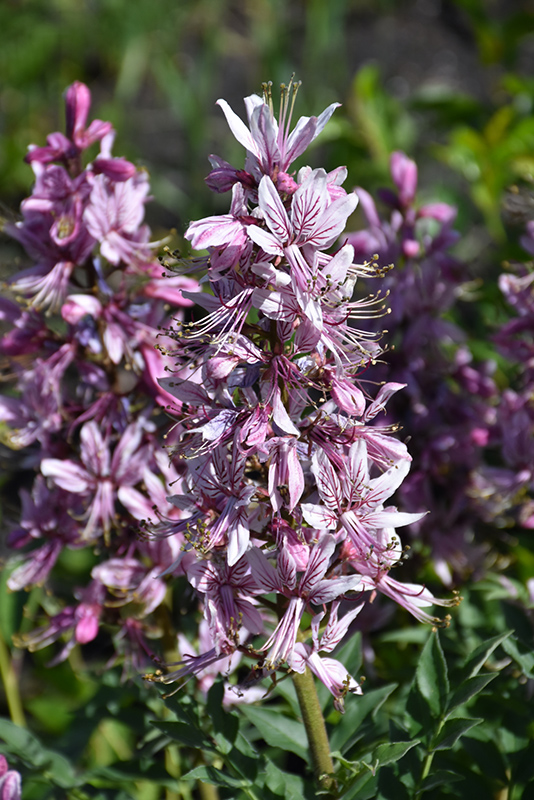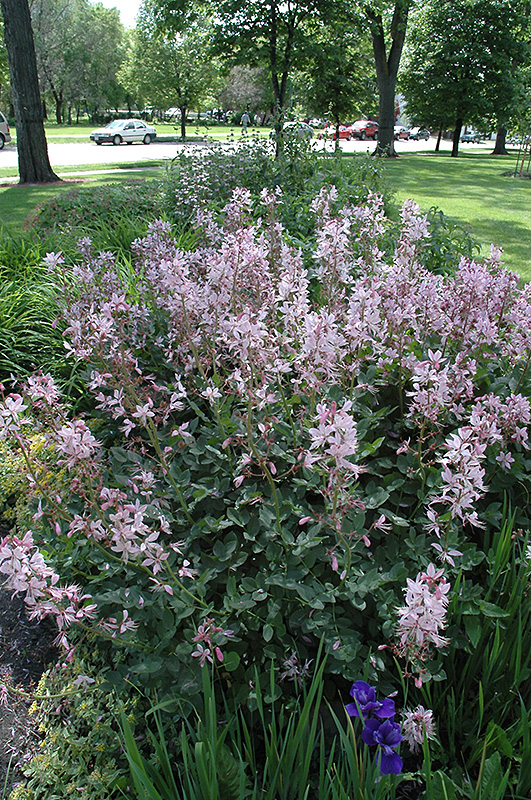Pink Gas Plant
Dictamnus albus 'var. purpureus'
Plant Height: 24 inches
Flower Height: 3 feet
Spacing: 24 inches
Sunlight:
![]()
![]()
Hardiness Zone: 2
Description:
Bushy upright mounded variety with aromatic glossy green leaves, smelling like citrus when bruised, and tall flower spikes of soft pink with deep purple veining; blooming late spring to early summer, great for borders, beds or fresh-cut arrangements
Ornamental Features
Pink Gas Plant has masses of beautiful spikes of lightly-scented shell pink flowers with purple veins rising above the foliage from late spring to early summer, which emerge from distinctive purple flower buds, and which are most effective when planted in groupings. The flowers are excellent for cutting. Its glossy pinnately compound leaves remain forest green in colour throughout the season.
Landscape Attributes
Pink Gas Plant is an herbaceous perennial with an upright spreading habit of growth. Its medium texture blends into the garden, but can always be balanced by a couple of finer or coarser plants for an effective composition.
This is a relatively low maintenance plant, and is best cleaned up in early spring before it resumes active growth for the season. Deer don't particularly care for this plant and will usually leave it alone in favor of tastier treats. It has no significant negative characteristics.
Pink Gas Plant is recommended for the following landscape applications;
- Mass Planting
- Border Edging
- General Garden Use
Planting & Growing
Pink Gas Plant will grow to be about 24 inches tall at maturity extending to 3 feet tall with the flowers, with a spread of 24 inches. When grown in masses or used as a bedding plant, individual plants should be spaced approximately 24 inches apart. It grows at a slow rate, and under ideal conditions can be expected to live for approximately 20 years. As an herbaceous perennial, this plant will usually die back to the crown each winter, and will regrow from the base each spring. Be careful not to disturb the crown in late winter when it may not be readily seen!
This plant does best in full sun to partial shade. It is very adaptable to both dry and moist locations, and should do just fine under typical garden conditions. It is not particular as to soil type or pH. It is somewhat tolerant of urban pollution. This is a selected variety of a species not originally from North America, and parts of it are known to be toxic to humans and animals, so care should be exercised in planting it around children and pets.


